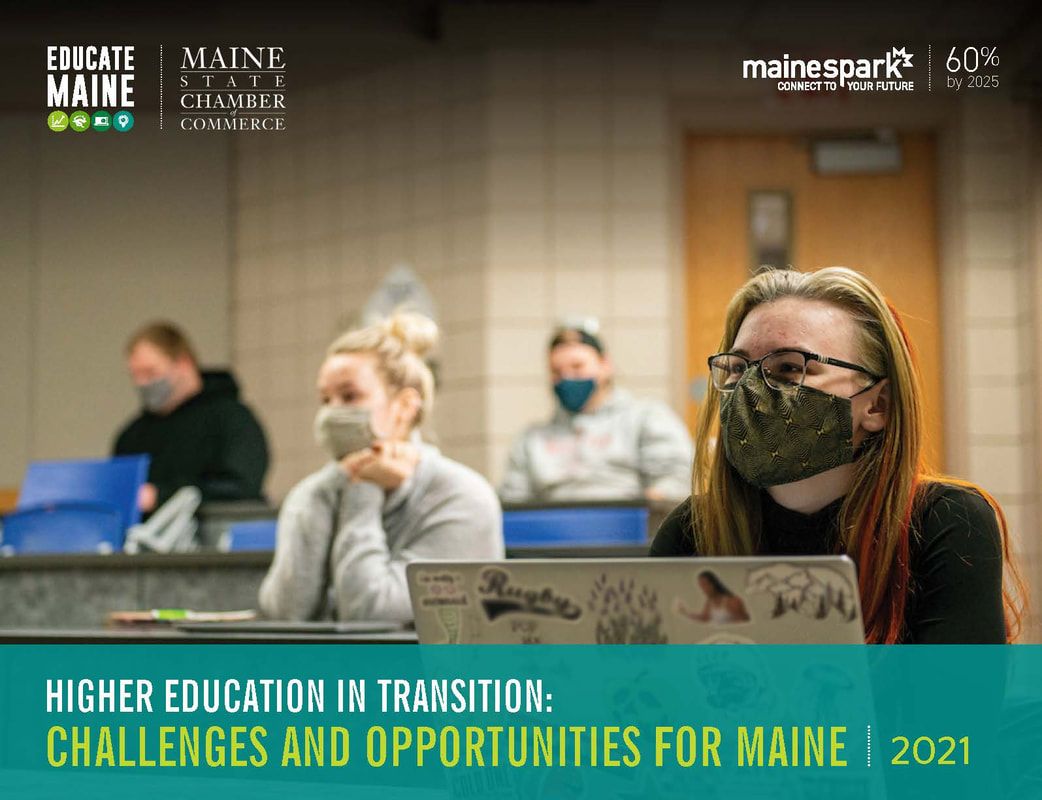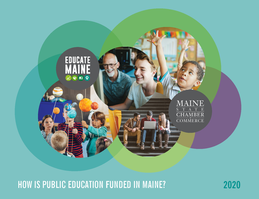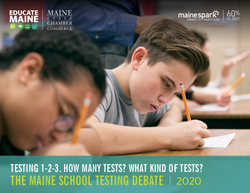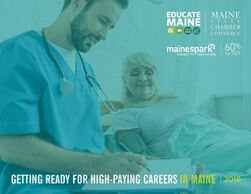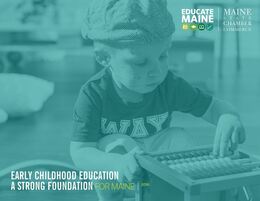Policy Brief Series with Educate Maine
This policy brief series focuses on individual indicators within the larger Education Indicators for Maine (2018) report and presents recommendations for strategies and actions that will improve outcomes. By design, the recommendations do not represent the full list of possible best practices, but rather focus on a few selected strategies with high return for Maine people. This policy brief series is brought to you through a partnership between Educate Maine and the Maine State Chamber of Commerce.
The Maine State Chamber of Commerce is a proud member of MaineSpark | 60% by 2025.
The Maine State Chamber of Commerce is a proud member of MaineSpark | 60% by 2025.
|
REPORT 11 | Read the press release
Higher Education in Transition: Challenges and Opportunities for Maine (2021) Higher education is a significant economic engine for Maine. As enrollments in higher education shift and funding is stretched, the need for a highly educated workforce in Maine increases. The strength of our economic recovery will lie in whether Maine can continue to adapt and invest in its people. This policy brief examines who we need to reach, why it’s important, and how higher education can move forward in light of present challenges. |
|
REPORT 10
How is Public Education Funded in Maine? (2020) This primer provides an overview of how public education is funded in Maine. It provides a brief history of education funding and details how much money is spent, by whom, and how this is decided. The report covers spending from early education through post-secondary education. |
|
REPORT 9
The Maine School Testing Debate This brief covers the purpose of educational tests and how students are assessed in Maine's public education system. Readers will learn about the opportunities and limitations of student assessment, as well as about innovations happening in Maine and elsewhere that can inform directions for assessments in the future. |
|
REPORT 8
Helping Diverse Students Thrive This brief highlights data on diverse student populations in Maine and outlines a set of strategies to help diverse student learners thrive. Welcoming and supporting diverse students will help attract and retain young families to Maine, grow Maine's workforce, and benefit Maine's communities and economy. |
|
REPORT 7
Employers and Educators Partnering to Create Opportunities for Their Workers and Students This report identifies six sectors where the Maine economy is producing high-quality, high-paying jobs. Unfortunately, many jobs remain unfilled because too many Maine students and workers don't have the necessary knowledge, skills, or credentials to fill these roles. This brief shares a range of case studies that illustrate the creativity, initiative, and variety of school-employer partnerships that can help address these gaps. |
|
REPORT 6
Getting Ready for High-Paying Careers in Maine This report identifies the jobs and sectors that are projected to be in demand in Maine for the next ten years: computer analysis, construction, engineering, health care, hospitality, and manufacturing. For each sector, the report describes the particular jobs that are in demand, the pathways for certification in each of these jobs, and how those interested can take the initial steps to get qualified. |
|
REPORT 5
How is Public Education Funded in Maine? (2017) This report identifies the jobs and sectors that are projected to be in demand in Maine for the next ten years: computer analysis, construction, engineering, health care, hospitality, and manufacturing. For each sector, the report describes the particular jobs that are in demand, the pathways for certification in each of these jobs, and how those interested can take the initial steps to get qualified. |
|
REPORT 4
Career Technical Education (CTE): Increasing Student Success by 100% Career and Technical Education (CTE) schools connect Maine youth to credentials of value that prepare them for careers and college. This brief provides six strategies with 11 recommended actions to elevate the profile of the CTE pathway, increase its capacity, and maximize the number of students enrolled in CTE programs in Maine. |
|
REPORT 3
College and Career Readiness for Maine The path to college and career readiness begins in early childhood and involves the continuous support of families, schools, and communities. This brief highlights seven diverse strategies and 15 concrete actions that Maine can take to improve college and career readiness for our students. |
|
REPORT 2
Early Childhood a Strong Foundation for Maine If Maine were to provide high-quality early childhood education to all, it would allow more parents to work and pay taxes; reduce state per-child spending on special education, juvenile corrections, and child protective services; reduce the costs in later years of public assistance; and increase tax revenues from participants after they had grown up. And yet public funding for early childhood education is disjointed. This brief shares five strategies and nine recommended actions to ensure that access to high-quality early learning is available to every Maine child. |
|
REPORT 1
College Affordability for Maine This is the first in a series of policy briefs aimed at achieving the goals laid out in the annual Education Indicators for Maine report. The specific indicator addressed is College Cost and Student Debt, for which the brief outlines six strategies and eleven targeted actions for reducing debt and making post-secondary education more affordable. |

